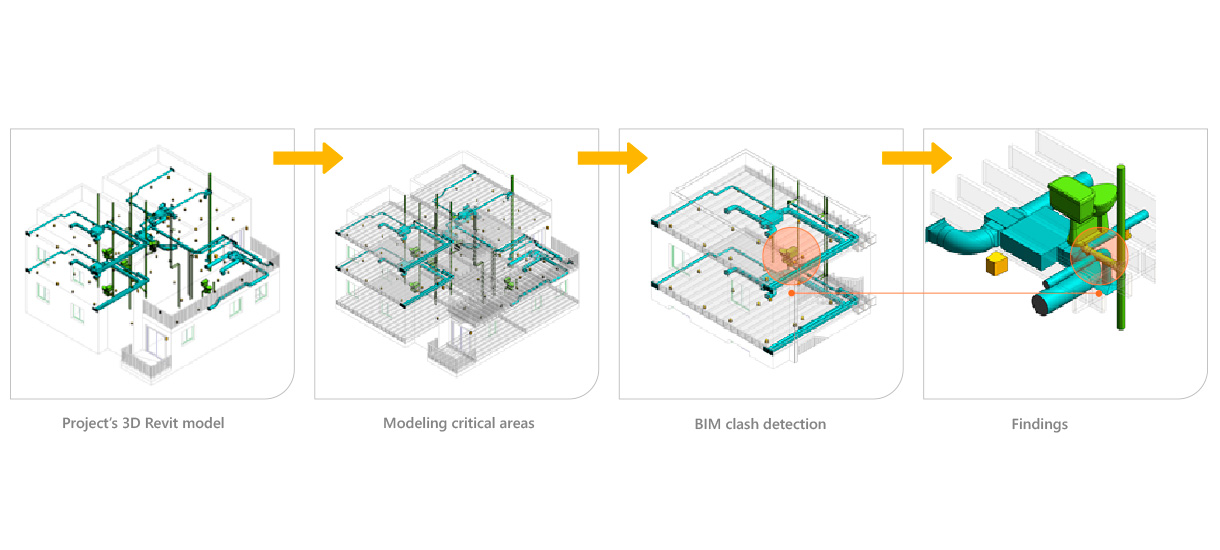Considering they can often reach as high as 10% of total contract values, change orders (CO’s) and rework can exceed market margins, disrupting budgets, timelines, and overall project success. Here are our pieces of advice to effectively manage them and reduce their impact on the project and stakeholders.

Did you know that $177 billion is wasted annually in the US due to construction delays and rework (Dodge Data & Analytics)? That's 5% of all construction spending in the country. We recently participated in a webinar hosted by John Meibers, Vice President | General Manager at Deltek + ComputerEase, where we delved into the primary keys to keep modifications to the scope of work within the expected margin. Here are our 10 takeaways:
1. Define a detailed scope of work: Your contract acts as the project bible. A comprehensive and well-defined scope of work includes clearly outlining materials, specifications, and every aspect of the project. Any ambiguity here is a recipe for change orders later.
2. Thorough design review: Remember to consider the importance of a meticulous design review. Developers should carefully review plans for completion status and potential issues. Catching discrepancies early saves time and money down the road. Let us be your Technical Project Managers and rest assured that your RFIs and Change orders will be reduced to a minimum with our Full Design Review scope!
With our Full Design Review scope, you can be assured that your RFIs and change orders will be kept to a minimum, saving you time and money.
Ken Bernhard - Managing Director of Construction and Development.
3. Communication is King: Consistent and transparent communication between owner, architect, contractor, and subcontractors is crucial. Regular meetings and precise documentation of the decision-making process help keep everyone on the same page and avoid misunderstandings that might create a change in conditions. Keep the dialogue positive, but also establish that there is a structured process for changes requests.
4. Embrace early stakeholder engagement: Involving all stakeholders throughout the planning stages allows for early identification and incorporation of their desired changes. Addressing them early minimizes disruption and cost.
5. Anticipate potential issues: We understand that unforeseen situations can always arise, however proactive planning can address potential unknowns, like subsurface conditions or material availability. Having a contingency plan in place helps course-correct without being surprised by sort of items as costly change orders.
With our QA/QC and BIM Clash Detection rounds, say goodbye to construction surprises! We find the headaches before they find you.
6. Standardize the change order process: Establish a clear and well-defined process for handling change orders from discovery to approval. This includes outlining who has the authority to approve changes, the documentation required and how costs will be determined. It's easy to lose time manually creating CO’s all the time. Create a CO template that you can reuse.
7. Track change orders meticulously: From the moment a change is requested, use a system to track its progress meticulously. This includes details like justification, cost estimates or backup and approval status. Clear tracking allows for informed decision-making and avoids confusion. Let us track each change order so that you can focus on what you know best!
8. Technology at your service: Construction accounting software can be a valuable tool for managing change orders. It allows you to visualize the overall impact of CO’s on budgets and schedules, track pending approvals, and helps to ensure proper billing of approved changes.
Technology is a must in all our processes, from BIM technology implementation to our own project management platform (Frank). Our team leverages Frank to streamline workflows, centralize data, track progress and quickly identify issues.

9. Select the right contractor: When choosing a contractor, their experience in keeping change orders to a minimum is a must. Look for a contractor who is proactive; talks things through clearly and tackles problems ahead of time before they become bigger, while also working together with you to find solutions. That kind of teamwork can make a world of difference.
10. Leave room for flexibility: Sure, having a clear plan from the start is key, but identifying an appropriate contingency within a budget helps with those smaller issues that may pop up along the way. It's a lifesaver for those unexpected but minor adjustments.
Master change orders with these actionable tips, and you'll steer clear of unexpected surprises. By fostering open communication and maintaining thorough documentation, everyone stays aligned. This transparency keeps your project on course and lays the groundwork for a mutually beneficial outcome. At Corbis, we're Project Delivery Specialists dedicated to minimizing RFIs and, consequently, change orders. Let us take the reins from start to finish, ensuring a seamless construction process. Reach out to us today to sidestep future headaches. Chek out our previous work.